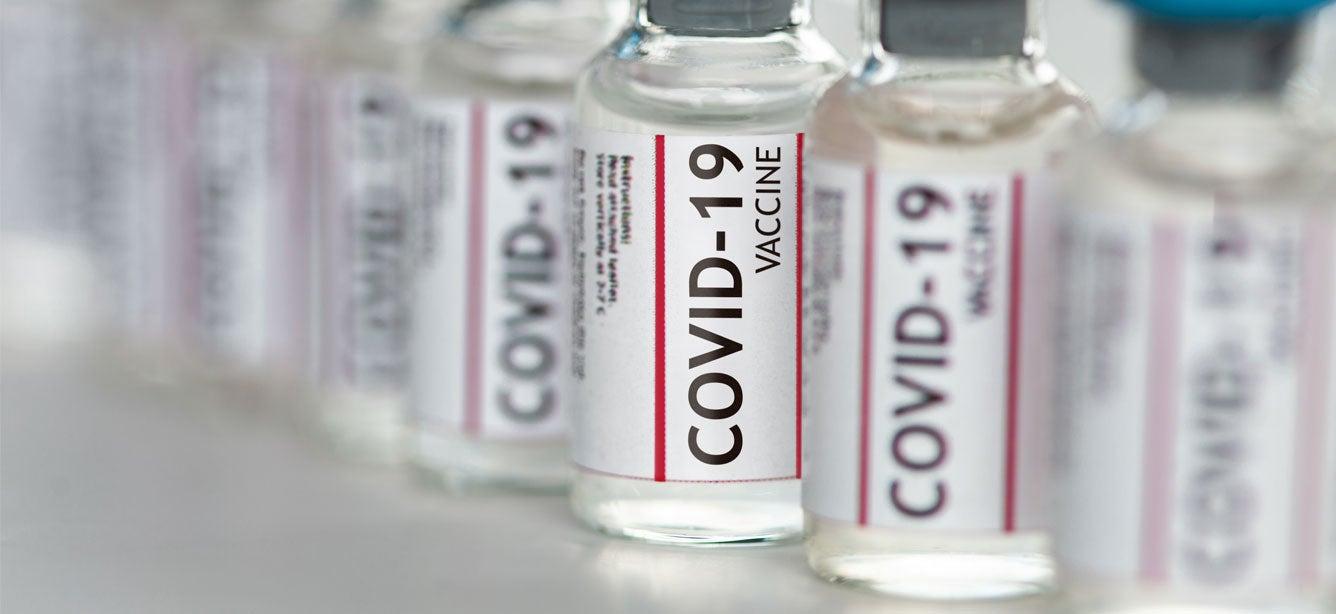How to Help Medicare Beneficiaries With the COVID-19 Public Health Emergency Unwinding
4 min read

Related Topics
The COVID-19 public health emergency (PHE) ended May 11, 2023. This return-to-normal operations and the end of pandemic-specific Medicare and Medicaid policies has been dubbed the “unwinding period.”
As a result of this "unwinding", millions of Americans with low income—including older adults and people with disabilities—may lose their Medicaid benefits or experience gaps in coverage. However, many of these people may be eligible for other coverage through Medicare or the Marketplace established by the Affordable Care Act.
What does the public health emergency 'unwinding period' mean for Medicare?
- Some of the waivers and flexibilities that changed Medicare coverage during the emergency are no longer in place.
- Some Medicare coverage and cost rules are returning to what they were before 2020.
In addition, beneficiaries with both Medicare and Medicaid (dual eligible individuals) need to be re-evaluated for Medicaid eligibility. If an older adult has been notified that they no longer qualify for Medicaid, but they believe that's not the case, they can reapply. They can also reapply if they did not complete all the steps required for renewal (and they advise your state within 90 days of coverage termination). There’s no limit on how many times someone can reapply for Medicaid benefits.
What does the unwinding mean COVID-19 testing?
Original Medicare continues to cover COVID-19 PCR tests (which identify genetic material) and antigen tests (often referred to as rapid tests) with no cost-sharing (no deductible, coinsurance, or copayment) when the test is ordered by a physician or other health care practitioner. Original Medicare does not cover over-the-counter (OTC) at-home tests as of May 11, 2023.
Medicare Advantage Plans must continue to cover COVID-19 PCR and antigen tests, but costsharing may apply. A beneficiary should contact their plan to learn more about costs. Medicare Advantage plans may also continue to cover OTC at-home tests. A beneficiary should contact their plan to learn if this supplemental benefit is offered, and what rules, restrictions, or costs may apply.
How will the public health emergency unwinding impact COVID-19 vaccines?
Coverage for COVID-19 vaccines stays the same after the PHE ends. The federal government has paid for the cost of the vaccine for all people, and Original Medicare Part B covers administration of the vaccine for Medicare beneficiaries, regardless of whether a beneficiary has Original Medicare or a Medicare Advantage Plan. The beneficiary will owe no cost-sharing (deductibles, copayments, or coinsurance). Beneficiaries should bring their red, white, and blue Medicare card to their vaccination appointment, even if they have a Medicare Advantage plan. If they do not bring their card, their provider may ask for their Social Security number in order to look up their Medicare number and bill Medicare.
Medicare covers COVID-19 booster shots with zero cost-sharing. Refer to the Centers for Disease Control and Prevention (CDC) website for more information about COVID-19 vaccines and boosters.
People should receive COVID-19 vaccine and booster shots for maximum protection against the virus. Health officials recommend older adults receive timely booster shots, especially as new variants emerge. Beneficiaries should speak with their doctor if they have questions or concerns.
Will the public health emergency unwinding affect COVID-19 treatments?
- Monoclonal antibody treatment: Medicare covers certain monoclonal antibodies to prevent COVID-19 in certain patients with compromised immune systems. Beneficiaries will owe no cost-sharing (deducible, coinsurance, or copayment) for these covered treatments.
- Other COVID-19 treatments: Medications that are given while people are inpatients will be covered under Part A or a beneficiary’s Medicare Advantage plan. Some medications, like Remdesivir, are administered by providers as injections or infusions and will be covered under Part B or a person’s Medicare Advantage plan. Cost-sharing may apply.
For Paxlovid, which is available at pharmacies, there is no cost-sharing until the government-procured supply of the medication is exhausted. After the supply has been used, Part D plans must then cover the medication, either as a formulary drug or through the exceptions process. At that point, deductibles and copayments will apply.
Will waivers for skilled nursing facility (SNF) care be in place?
During the PHE, there were two waivers related to SNF care. After May 11, 2023, these two waivers will no longer apply:
- Three-day qualifying hospital stay. Medicare Part A generally only covers skilled nursing facility (SNF) care if someone was a hospital inpatient for three days in a row before entering the SNF. This is known as the three-day qualifying hospital stay. During the PHE, Medicare removed the three-day qualifying hospital stay requirement for beneficiaries who experienced dislocations or were otherwise affected by the COVID-19 public health emergency. This waiver ended on May 11, 2023.
- Benefit period. Typically, Medicare Part A covers up to 100 days of SNF care each benefit period. A benefit period begins when a beneficiary is admitted to a hospital as an inpatient, or to a SNF, and it ends when they have been out of a SNF or hospital for at least 60 days in a row. The 100 days of covered SNF care resets at the beginning of a new benefit period. During the PHE, beneficiaries who were unable to start a new benefit period because of the public health emergency could get another 100 days of covered SNF care without having to begin a new benefit period. This waiver ended on May 11, 2023.
If a beneficiary has a Medicare Advantage plan, they should contact their plan directly to learn how it covers SNF care.
How has the public health emergency unwinding expanded telehealth services?
A telehealth service is a full visit with a provider using telephone or video technology. Before the PHE, Medicare telehealth coverage rules were limited. During the PHE, the situations in which Medicare would pay for telehealth-provided services expanded significantly. Services that can be provided through telehealth include, for example, hospital and doctors’ office visits, mental health counseling, and preventive screenings.
Expanded coverage for telehealth will continue past the end of the PHE. Through Dec. 31, 2024:
- Medicare covers telehealth services for beneficiaries in urban and rural areas
- Medicare covers telehealth services in health care settings and in a beneficiary’s home
Standard cost-sharing may apply, but note that a provider can choose to waive cost-sharing charges. If a beneficiary has a Medicare Advantage plan, they should contact their plan to learn about its costs and coverage rules for services received through telehealth.
Medicare Advantage plans must cover all the telehealth benefits included in Original Medicare, but they may also cover additional telehealth benefits.
Telehealth and durable medical equipment (DME)
Medicare requires a face-to-face meeting for coverage of most durable medical equipment (DME). This face-to-face meeting can be met via telehealth if the appointment meets the requirements to be a covered telehealth visit. For example, through Dec. 31, 2024, telehealth visits are covered for Original Medicare and Medicare beneficiaries in urban and rural areas in health care settings and in a beneficiary’s home. After Dec. 31, 2024, telehealth coverage may be more limited.
Telehealth and home health care
During the PHE, home health care agencies could provide services via telehealth if they were listed on the plan of care and not used in place of in-person services on the plan of care. The face-to-face visit required for recertification of home health care could also be met via telehealth.
After the end of the PHE, beneficiaries will continue to be able to receive covered home health care services and meet the face-to-face visit requirement via telehealth, as long as the services or visits meet the general telehealth requirements.
What about home health care?
During the PHE, nurse practitioners and physician assistants were authorized to prescribe home health care. This change has been made permanent and will continue after May 11, 2023. This means doctors, nurse practitioners, and physician assistants can prescribe home health care.
What does the unwinding of Medicaid Continuous Coverage mean for older adults?
During the PHE, states were given the flexibility to keep beneficiaries continuously enrolled in Medicaid coverage. As a result, dually eligible individuals had their Medicaid automatically extended. This continuous coverage flexibility ended March 31, 2023, meaning states must start to process Medicaid renewal applications.
Beneficiaries should check with their local Medicaid office to learn about how the Medicaid renewal process is being handled in their state. They may also receive letters or other notifications from their state about the renewal process. Upon renewal, a beneficiary will either be found to still be eligible for Medicaid, or they may no longer be eligible and will lose the benefit.
Medicare beneficiaries who need help with Medicare costs but are found ineligible for Medicaid upon renewal should contact their State Health Insurance Assistance Program (SHIP) for benefit screening.
For more information visit the Medicaid.gov PHE unwinding page or see the links in the printable version of this fact sheet below.


